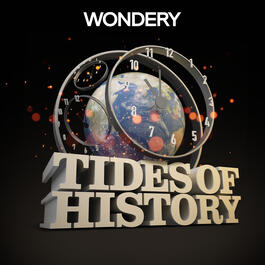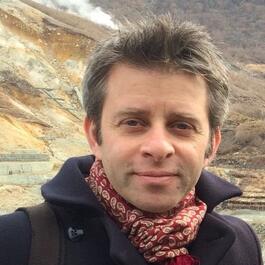
Tides of History
Everywhere around us are echoes of the past. Those echoes define the boundaries of states and countries, how we pray and how we fight. They determine what money we spend and how we earn it at work, what language we speak and how we raise our children. From Wondery, host Patrick Wyman, PhD (“Fall Of Rome”) helps us understand our world and how it got to be the way it is. Listen to Tides of History on the Wondery App or wherever you get your podcasts. You can listen to bonus episodes available exclusively and ad-free on Wondery+. Join Wondery+ in the Wondery App, Apple Podcasts or Spotify. Start your free trial by visiting wondery.com/links/tides-of-history/ now.
Show episodes
Runic writing carries connotations of magic and fantasy, but it was a widespread, useful, and long-lasting system of writing. Professor Tom Birkett has written a fantastic overview of runic writing that returns it to the real time and place in which it existed - Runes: A Concise History. Patrick launched a brand-new hi
Let's imagine a Macedonian soldier during the time of Alexander the Great. How did this man, whom we'll call Red Cleitus, spend the vast amounts of coin he plundered and earned as he and his comrades fought their way across Asia? Patrick launched a brand-new history show! It’s called Past Lives, and every episode explo
Patrick's new book, Lost Worlds: How Humans Tried, Failed, Succeeded, and Built Our World, launches May 5th, 2026! Check out this audiobook preview chapter on two murders around 5,300 years ago, hear about everything we can learn from Otzi the Iceman in the Alps and Gebelein Man in Egypt, and be sure to preorder the bo
Check out a scripted episode of Patrick's new show, Past Lives! Nearly 2,700 years ago, a woman and her daughter were ripped away from their homes in what is now Iran by the soldiers of the Assyrian Empire. Nanaya'ila'i was one of thousands upon thousands of people to experience the violence that accompanied conquest,
We've talked about how rich classical Athens was, but what did that mean for an average person living at the time? In this episode, we follow the life of a composite character, an Athenian citizen farmer named Megakles, to see how the economic developments of the classical age shaped daily life in Athens. Patrick launc
Like many of you, I first fell in love with history through the movies. Dr. Jason Herbert hosted a podcast called Historians at the Movies, now retitled Reckoning with Jason Herbert, that focuses on films depicting the past and what historians think about them. We have a delightful conversation about some of our favori





